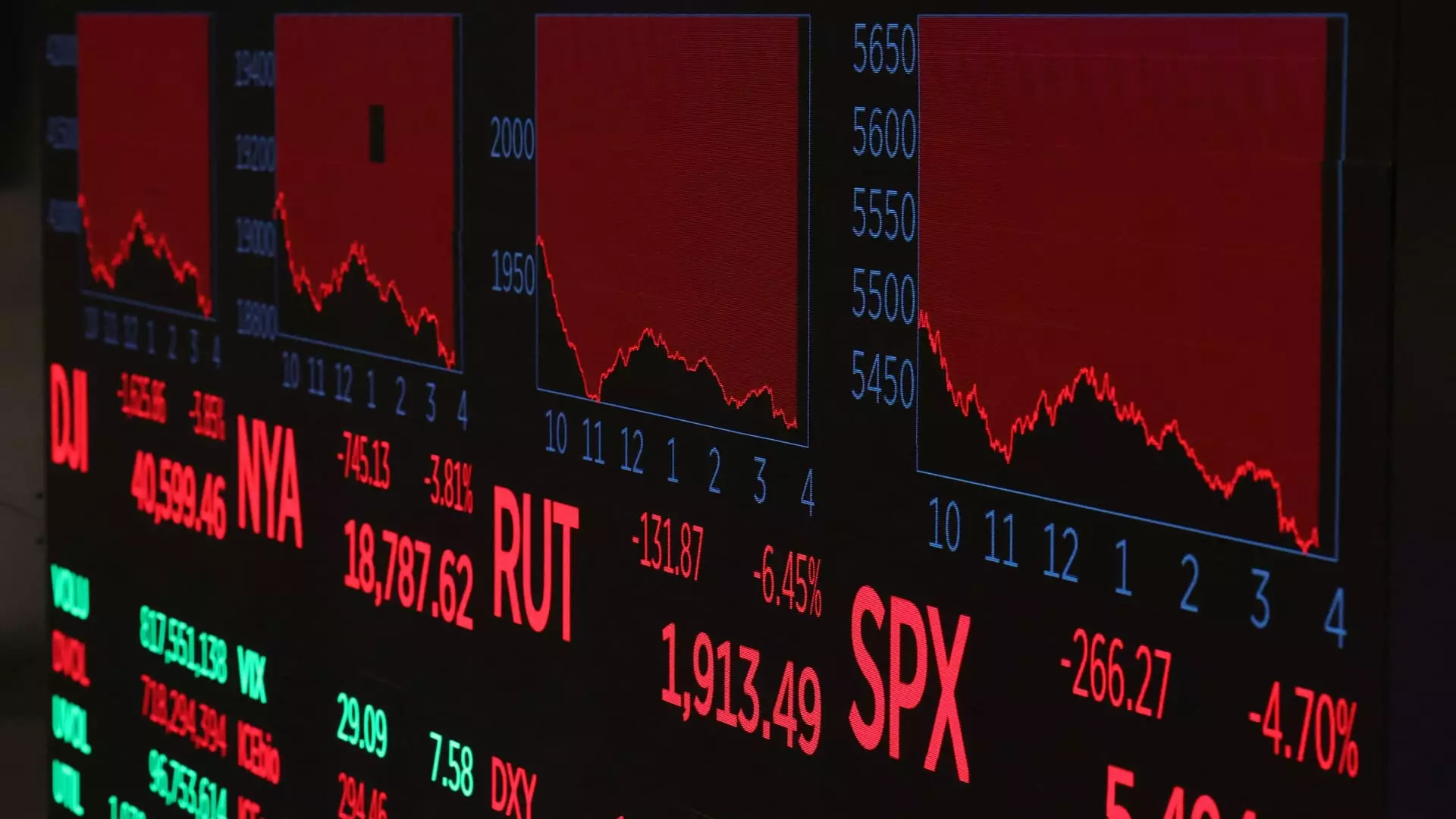As the America grapples with economic uncertainty, retail investors have been taking decisive action. Despite fears sparked by President Donald Trump’s tariff announcements, a growing wave of individual investors has jumped into the stock market, disregarding the market’s volatile downturns. The sentiment among these investors is not one of panic but of opportunity. They see the significant drops in stock prices as buying opportunities, demonstrating resilience not often seen in retail trading. Despite the apprehensions expressed by Wall Street experts, many regular Americans feel empowered to invest, viewing these moments as flash sales for their future wealth.
The Psychology Behind “Buying the Dip”
For many retail investors, the rationale behind “buying the dip” goes beyond mere speculation. They believe in a long-term investment strategy, often accepting short-term losses as necessary for future gains. Market downturns, like the 12% tumble of the S&P 500, can feel daunting, but for savvy investors, they are golden opportunities to acquire assets at lower prices. As the adage goes, “buy low, sell high,” and a notable surge in retail investment during dips serves as evidence that many are internalizing this timeless principle. A lot of these investors have begun to educate themselves about market trends and strategies, making the concept of using market downturns to purchase stocks a part of their financial lexicon.
Institutional Trading versus Retail Resilience
As the stock market underwent a turbulent phase, institutional investors fled, exacerbating a decline that briefly pushed the S&P 500 into bear market territory. Yet, this fear hasn’t resonated with everyday investors. In fact, while large institutions were retreating, retail traders were entering the fray. According to data from Vanda Research, retail investors injected a staggering $8.8 billion into U.S. stocks in a single week, not just a nominal amount, but a record-breaking influx. Such behavior starkly contrasts the established wisdom that suggests retail investors capitulate in a downturn. This active participation signifies a deeper belief in the market’s resilience and the potential for future recovery.
Long-Term Strategies Amid Short-Term Chaos
While the market fluctuates wildly, savvy investors recognize that the best approach involves focusing on broader market indexes instead of individual stock picking. By investing in exchange-traded funds (ETFs) such as the Vanguard S&P 500 ETF, retail traders signal their intent to hold long-term and ride through the turbulent waves. This avoidance of speculative day trading not only reflects confidence in a market rebound but demonstrates an understanding of economic cycles. The growing interest in diversified funds can be seen as a strategic counter to the uncertainties of the market, showing that everyday investors are not just survivors, but also thinkers who embrace a calculated risk.
Understanding Investment Risks
This boom in retail investing also comes with significant risks. The VIX, Wall Street’s fear gauge, recently hit levels not seen since early 2020, indicating that volatility and uncertainties are never far behind. Retail investors who view these market dips as buying opportunities must also remain aware of the inherent risks of increasing their exposure in a fluctuating market. While the influx of capital into stocks might feel empowering, entering the market during tumultuous times requires a balanced perspective. Risk tolerance must be evaluated to prevent devastating losses in the long run, and new investors should don’t let short-term gains overshadow the big picture.
The Influence of Social Media and Investment Education
Another driving force behind this wave of retail investing is the power of social media. Influencers and investment education platforms have empowered a new generation of investors, particularly women and minorities, to navigate financial markets. Individuals like Tori Dunlap encourage followers by reminding them that wealth can often be built during a market downturn. The democratization of financial advice through online platforms is crucial in instilling confidence among investors, encouraging them to participate actively in the stock market rather than cower in fear of economic downturns.
Future Considerations amidst Market Fluidity
Despite the upbeat outlook from retail investors, concerns about the broader economic landscape remain valid. Many fear the long-term implications of Trump’s tariff policies and the potential inflationary impacts these decisions may have on their disposable income. The delicate balance between taking advantage of market opportunities and being cautious about fiscal policies has never been more important. This tension signifies that while everyday investors are charging forward, they must remain vigilant about external factors that could influence their economic futures.
In a landscape filled with uncertainty, retail investors are proving to be a formidable force, bridging resilience with strategic foresight as they navigate the swirling tides of the stock market.

